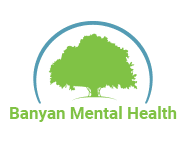


Situational Depression: Symptoms & Causes
January 20, 2022

Random Acts of Kindness Day: Simple Ways to Show Kindness to Others
February 10, 2022Effects of Taking Antidepressants When Not Depressed


Antidepressants are prescription drugs used to relieve symptoms of depression, social anxiety disorder, seasonal affective disorder (SAD), and dysthymia. These medications aim to correct the chemical imbalance that’s believed to contribute to changes in mood and behavior. First developed in the 1950s, anti-depression medications have become more popular within the last few decades. But while these medications are effective in treating people with depression, today, our behavioral health experts are sharing the effects of taking antidepressants when not depressed.
How Do Antidepressants Work for Depression?
Depression, or major depressive disorder, is a common and serious medical illness characterized by persistently depressed mood and loss of interest in activities significant enough to cause substantial impairment in day-to-day life. Because of their symptoms, people with depression may struggle to get out of bed in the mornings, and simple tasks like brushing their hair or changing their clothes can be draining.
Antidepressants reduce symptoms of depression by balancing chemicals in the brain called neurotransmitters, which affect mood and emotions, particularly dopamine and serotonin. These depression medications can improve your mood, concentration, and sleep, and increase your appetite.
For people with depression, antidepressants can help jump-start their moods and give them the boost they need to manage their symptoms and complete their daily tasks and responsibilities. Depression medication can also encourage these individuals to do the things they enjoy again and make better choices for themselves, contributing to an overall improved sense of being.
What Are the Effects of Taking Antidepressants Without Depression?
Research shows that taking antidepressants if you’re not depressed can alter brain function and structure, particularly the medication Zoloft. While the effects of depression medications – such as improved mood and emotion – are advantageous for people with depression, these drugs are designed to regulate a chemical imbalance. Below is more on what happens when you take antidepressants when you're not depressed.
Changes in Brain Volume
So, what happens when someone without a chemical imbalance takes these medications? According to a 2015 study, taking antidepressants when not depressed can reduce the volume of two important brain regions.
The first is the anterior cingulate cortex, which is the area of the brain that controls and regulates mood. The other is the hippocampus, which is where the registration and consolidation of memory occur. The researchers noted that people with depression had previously been shown to have smaller volumes in these brain regions compared to people who did not have depression.1
Additionally, both brain regions are interconnected with other areas of the brain and play critical roles in functions like memory, learning, spatial navigation, will, motivation, and emotion, all of which can be compromised by major depressive disorder.1
Serotonin Syndrome
Another possible adverse effect of taking an antidepressant when not depressed is serotonin syndrome. Most antidepressants boost mood and reduce depression symptoms by elevating serotonin levels in the brain. Although this is beneficial for someone who’s depressed, for someone who does not have depression, taking antidepressant medication can cause serotonin to build up in the body, resulting in serotonin syndrome.
When serotonin levels are too high, the person may experience symptoms like:
- Agitation or restlessness
- Confusion
- Rapid heart rate and high blood pressure
- Muscle rigidity
- Excessive sweating
- Dilated pupils
- Loss of muscle coordination or twitching muscles
- Diarrhea
- Headache
- Shivering
- Goosebumps
- Fever
- Irregular heartbeat
In serious cases, this condition can be life-threatening, producing symptoms such as seizures and loss of consciousness. If you recognize any of these signs in yourself or someone else, seek medical attention immediately.
Risk of Dependence and Addiction
Another possible risk of using antidepressants without depression is dependence. Drug dependence occurs when someone is unable to function normally without a particular drug or alcohol. Antidepressant dependence can occur in patients who take high doses for long periods, as well as in people who take these medications without prescriptions or to get high.
Although antidepressants don’t necessarily produce a high like heroin or cocaine, people may still abuse them by taking them in higher doses than prescribed or with other sedatives like alcohol, opioids, or benzos to exacerbate their effects. A person who’s physically dependent on depression medication may also experience a variety of uncomfortable symptoms called withdrawals when they reduce or cease their use.
If you’ve been taking antidepressants for more than four months or have abused them for long periods, do not attempt to quit using them without professional help. Our mental health facilities in Florida offer dual diagnosis treatment, during which patients with co-occurring addictions and mental disorders will receive care to address both conditions. Our mental health treatment specialists can assist you with the detox and recovery process.
Signs You Don’t Need Antidepressants
Determining whether an individual requires antidepressants is a decision that should be made by a qualified medical professional based on a thorough evaluation of the patient's condition. However, certain signs may suggest an individual may not require antidepressant medication.
While these are not definitive, and any changes in medication should be discussed with the prescribing healthcare professional, some signs you don’t need antidepressants anymore may include:
- Mild symptoms: If you’re experiencing mild or temporary symptoms of depression or anxiety, such as occasional sadness or stress related to a specific event, you may not immediately need antidepressants. Other treatment options or lifestyle changes might be sufficient to improve your symptoms and mental state.
- Effective non-pharmacological treatment: Some individuals may find relief from their symptoms through non-pharmacological interventions like psychotherapy, counseling, lifestyle modifications, or stress management techniques. Medication may not be necessary if these are effective in treating your symptoms.
- Underlying cause: If your symptoms are primarily caused by a specific life event or stressor, addressing that issue may alleviate the need for antidepressants.
- Resilience and coping skills: Individuals who demonstrate strong coping skills and resilience in the face of life's challenges may not require antidepressants, as developing effective coping strategies can help manage depressive symptoms.
- Safety and risk assessment: A thorough assessment of your safety and risk factors is essential. If there is no immediate risk of self-harm or harm to others, and your symptoms are not severe, other treatment options may be considered before prescribing antidepressants.
- Patient preference: Patient preferences and values play a significant role in the decision-making process. Some individuals may prefer non-pharmacological approaches or have concerns about medication, and their choices should be respected.
- Limited functional impairment: If your symptoms do not significantly impair your daily functioning and quality of life, antidepressants may not be the first-line treatment. Monitoring the impact on daily activities is crucial.
The decision to use antidepressants or any medical treatment should be made in consultation with a qualified healthcare provider. Only a trained medical professional can properly assess your condition and recommend an appropriate treatment plan, which may or may not include antidepressant medication.
Get Depression Treatment at Banyan
Depression is a serious mental health disorder that can significantly impact a person’s life and even lead to suicide if left untreated. Fortunately, Banyan offers depression treatment, among a variety of other mental health services, at our Florida and Massachusetts facilities to teach patients how to manage their symptoms.
Whether it’s depression, anxiety, OCD, or any other mental health disorder, we can help. Call Banyan Treatment Centers today at 888-280-4763 to learn how to get started in our residential or partial hospitalization programs.
Fix source section*
Source:







